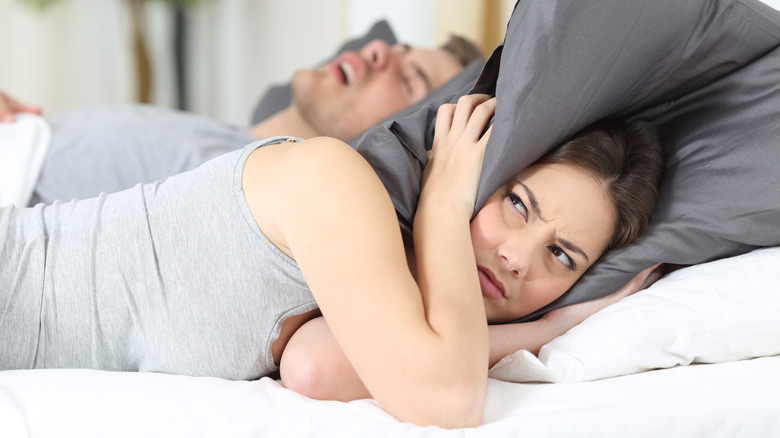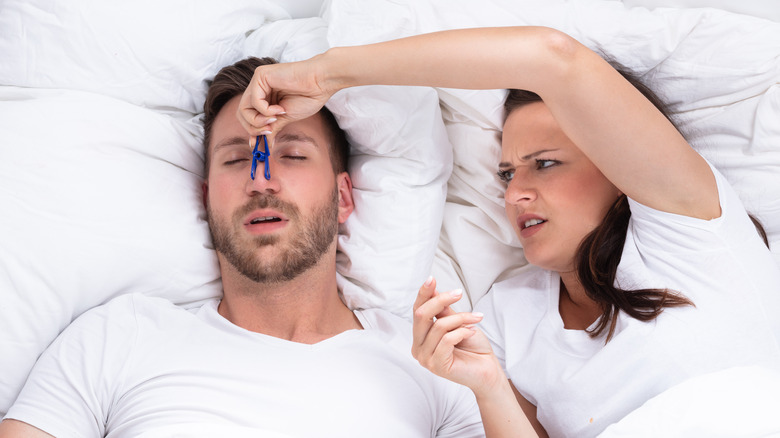The Reason You Snore When You Drink
There are lots of reasons why people snore, from weight to age, but alcohol consumption definitely has a major, and very noticeable, effect on snoring. So what does drinking have to do with it exactly?
First and foremost, drinking alcohol impacts breathing while you're sleeping. As Dr. Brett Comer, a head and neck surgeon and associate professor of otolaryngology, explained to Time, "When we're asleep, we tend to lose muscle tone — meaning the tongue flops back and the tissues and muscles in the throat and nose relax," so the air passing through as you breathe vibrates off them, causing snoring. Alcohol further relaxes your airways, which can make snoring worse.
Drinking can also induce sleep apnea
Writing for Very Well Health, neurologist and sleep medicine specialist Brandon Peters, MD, advised alcohol consumption also disrupts the natural sequence and length of sleep, by changing how long you sleep, as well as the time it takes you to fall asleep in the first place. It can even induce sleep apnea. This could potentially be quite dangerous, as Peters describes, "Your air passage narrows to such a degree it interrupts your natural breathing cycle and wakes you up, although you may fall back to sleep so fast you don't know you were ever awake. Sometimes the air passage completely closes."
Studies show a direct correlation between alcohol consumption and sleep apnea, even if you don't usually suffer from it. And, for those already suffering from the frightening condition, moderate or heavy drinking could make it worse by increasing the time between when breathing stops and when you "wake up."
As Peters explains, alcohol slows down your breathing and makes it shallower, as well as relaxes the muscles in your throat, which leads to heavier snoring. He advises sleep apnea sufferers to avoid alcohol entirely, but those who drink only occasionally and don't suffer from the condition should be fine. If you're concerned about heavy snoring and its possible side effects, don't drink just before bed to minimize the overnight effects.
It's worth noting that not getting enough regular sleep increases your risk of developing depression and heart disease, as well as slowing down your metabolism. Likewise, if your sleep is consistently disturbed by breathing problems (like snoring), it could lead to impaired brain functions, including lapses in memory. All things considered, a good night's sleep might just be worth skipping that last cocktail.

